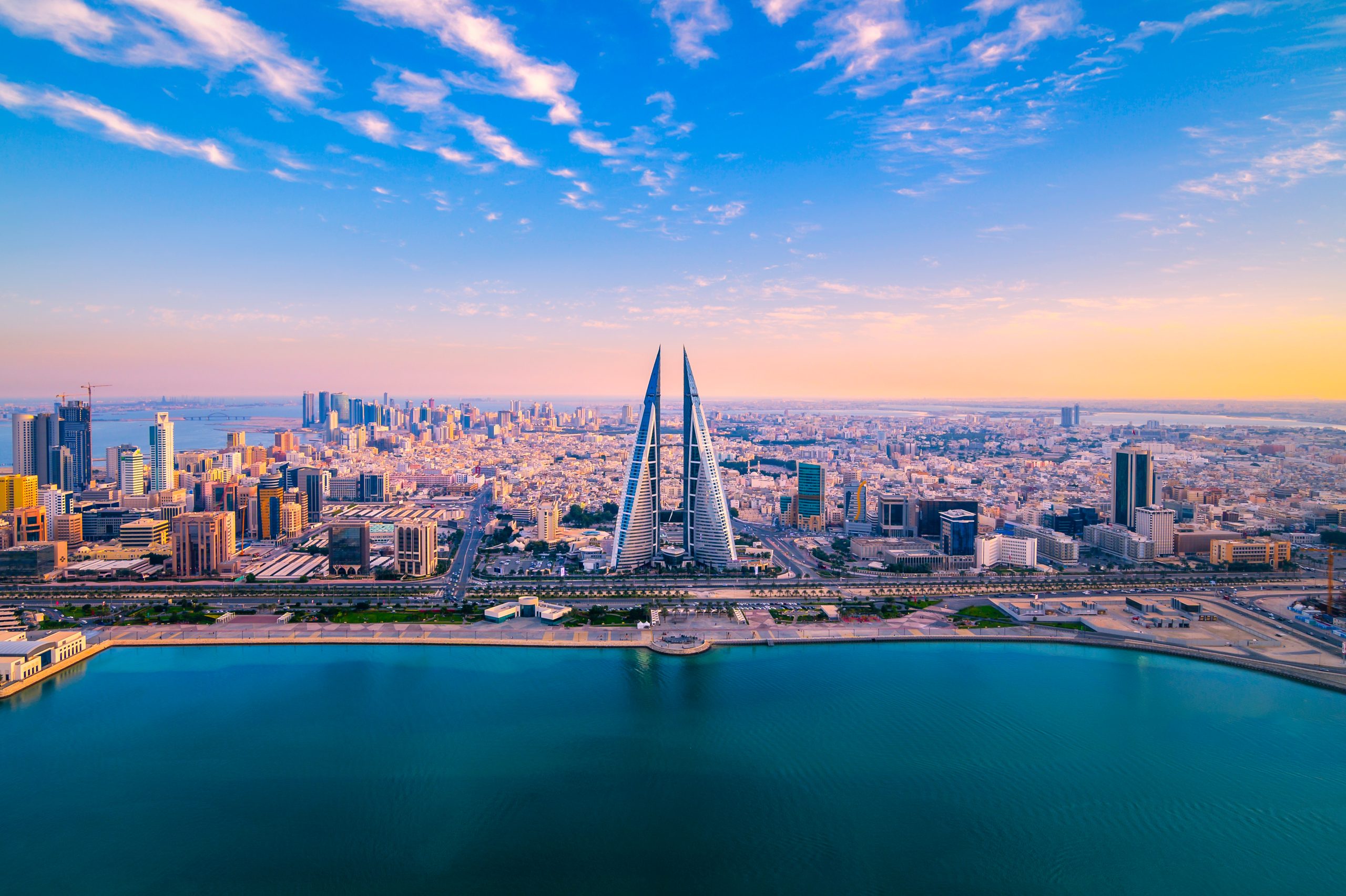SWEDEN HAS A CAFFEINATED SECRET TO HAPPINESS AT WORK
Workers and bosses alike are trying to figure out ways to reinvigorate work life. Could a cherished Swedish coffee ritual be the answer?
Would work be better if we all took a collective coffee break?
Workers in Sweden certainly think so. There, work life has long revolved around fika, a once- or twice-a-day ritual in which colleagues put away phones, laptops and any shoptalk to commune over coffee, pastries or other snacks. Swedish employees and their managers say the cultural tradition helps drive employee well-being, productivity and innovation by clearing the mind and fostering togetherness.
Now, as bosses and workers elsewhere try to reinvigorate office life and flagging job satisfaction, fika fascination is seeping into other workplaces.
The Grand, a New York-based career and leadership coaching platform, summons its all-remote staff of 10 every other Friday for coffee and conversation over Zoom. London-based Hubble, a website for finding flexible workspaces, took up the tradition after being introduced to it by a Swedish staff member.
“Everyone has an excuse to log off and let their hair down,” said Tushar Agarwal, chief executive of Hubble, where staff gather the last Thursday of every month for baked goods, chitchat and, of course, coffee.
A recent product offering—for part-time office space with new contract terms—sprang from a discussion that took place during fika, says chief of staff Charlie Bastier. It’s now one of the fastest-growing revenue streams, he says.
Not a Starbucks run
The pressure to make tweaks to the daily ritual is particularly acute in the U.S. Employees continue to report feeling less engaged in their jobs than in pre pandemic times, Gallup data show.
In addition, bonding with colleagues has become harder and less of a priority for many people in the hybrid world of work. Some employers worry the lack of social cohesion is harming company culture and operations.
At The Grand’s regular fika, staffers take turns hosting, leading with casual conversation or a board game such as Code Names or a drawing competition. The Grand’s co-founder Rei Wang says that fika allows her to spend time with her staff, making her a better leader.
“Learning more about their passions and their geniuses helps me understand and collaborate with them,” she says.
Pronounced “fee-kah,” the Swedish culture of breaking for coffee involves much more than a schlep to Starbucks. It’s meant to be a deliberate pause to provide space and time for people to connect. Many Swedish companies build a mandatory fika into the workday, while the Embassy of Sweden in Washington holds one for staff weekly. IKEA, promoting its Upphetta coffee maker on the corporate website, extols the virtues of fika: “When we disconnect for a short period, our productivity increases significantly.”
“Fika is where we talk life, we talk everything but work itself,” said Micael Dahlen, professor of well-being, welfare and happiness at the Stockholm School of Economics. The ritual helps drive trivsel, he says, a term that means a combination of workplace enjoyment and thriving. The concept is so fundamental to Swedish workplaces that many companies in Sweden have trivselcommittees, he said.
Dahlen said he suspects a pandemic-era drop in office fikas contributed to a sharp decline in Swedes’ happiness at work. Just over half of workers in Sweden reported a high level of job satisfaction in 2022, according to Eurostat, compared with 69.5% in 2017.
A productivity booster
There’s some evidence that communal coffee breaks help boost productivity. In a study of call centre workers at Bank of America, researchers at the Massachusetts Institute of Technology found that teams that scheduled 15-minute breaks together were 18% more communicative with one another through the workday than groups with staggered breaks.
Annual turnover, likewise, was 12% among teams that held collective coffee breaks versus 40% among other workers. In all, the teamwork fostered via the breaks led to an estimated $15 million in increased annual productivity, says lead researcher Ben Waber.
“People who are in a tight knit social group have higher levels of trust,” said Waber, who has since founded a behavioural analytics company called Humanyze.
Hubble employees take turns baking and get a stipend of about $20 for supplies for the company’s monthly fikas. Last week, 26 staff members gathered in a communal area away from desks and cubicles.
Kate Mehigan, an account manager, brought in homemade arancini balls and Eliot Dixon, an account team lead, laid out a Basque cheesecake from a recipe he’d found online. Some people played ping pong.
Fleur Sylvester, a Hubble account executive, used the time to quiz a colleague on training advice for running a half-marathon. Sylvester says when she joined the company over a year ago the gatherings were invaluable for helping put faces to names.
“You get an opportunity to speak to other team members that you don’t get to talk to on a day-to-day basis,” Sylvester said. “When you’re online you don’t get the opportunity to have those chats.”
Peter Linder, head of thought leadership in North America for Swedish telecom giant Ericsson, recently introduced the fika concept to Jason Inskeep, senior director at management consulting company Slalom. The two men had initially met on a joint panel discussion, and Linder wanted to congratulate Inskeep on his new job at Slalom. He sent Inskeep a Zoom invite for a 20-minute fika one-on-one.
“I didn’t know what it was,” Inskeep said.
The vibe of the midmorning conversation—which meandered from the future of artificial intelligence to Inskeep’s own feelings navigating a new company culture—was different from the usual business tête-à-têtehe said. Bouncing ideas back and forth in a relaxed way left him feeling energised the rest of the morning.
“It was a mix of coffee shop and barber shop,” he said.
 Copyright 2020, Dow Jones & Company, Inc. All Rights Reserved Worldwide. LEARN MORE
Copyright 2020, Dow Jones & Company, Inc. All Rights Reserved Worldwide. LEARN MORE
Chris Dixon, a partner who led the charge, says he has a ‘very long-term horizon’
Americans now think they need at least $1.25 million for retirement, a 20% increase from a year ago, according to a survey by Northwestern Mutual
Saudi Arabia ranked first among countries for the non-oil exports of national origin with BD201 million (22%)
Bahrain’s non-oil exports of national origin decreased by 6% to BD894 million ($2.37 billion) in Q2 2024 compared to the same period in 2023. The top 10 countries accounted for 64% of the total export value.
According to the Information & eGovernment Authority (iGA) in its Q2 2024 Foreign Trade report, Saudi Arabia was the leading destination for these exports, totaling BD201 million (22%). The US followed with BD75 million (8.4%), and the UAE with BD73 million (8.2%).
Unwrought aluminum alloys were the top exported product in Q2 2024, amounting to BD267 million (30%), followed by agglomerated iron ores and concentrates alloyed at BD159 million (18%) and non-alloyed aluminum wire at BD49 million (5%).
Non-oil re-exports
Non-oil re-exports increased by 4% to reach BD206 million during Q2 2024, compared to BD198 million for same quarter in 2023. The top 10 countries accounted for 86% of the re-exported value. The UAE ranked first with BD58 million (28%) followed by Saudi Arabia with BD39 million (19%) and UK with BD17 million (8%).
As per the report, turbo-jets worth BD65 million (32%) were the top product re-exported from Bahrain, followed by private cars with BD11 million (5%) and four-wheel drive with BD9 million (4%).
The value of non-oil imports has decreased by 4% reaching to BD1.41 billion in Q2 2024 in comparison with BD1.47 billion for same quarter in 2023. The top 10 countries for imports recorded 68% of the total value of imports.

China Bahrain’s biggest importer
China ranked first for imports to Bahrain, with a total of BD191 million (14%), followed by Brazil with BD157 million (11%) and Australia with BD112 million (8%).
Non-agglomerated iron ores and concentrates were the top product imported to Bahrain worth BD200 million (14%), followed by other aluminum oxide with BD101 million (7%) and parts for aircraft engines with BD41 million (3%).
As for the trade balance, which represents the difference between exports and imports, the deficit logged was BD310 million in Q2 2024 compared to BD322 million in Q2 2023.
Chris Dixon, a partner who led the charge, says he has a ‘very long-term horizon’
Americans now think they need at least $1.25 million for retirement, a 20% increase from a year ago, according to a survey by Northwestern Mutual





















